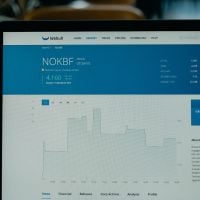Deadline: 16 March 2020
The European Union support to civil society in the Republic of North Macedonia is framed by the Guidelines for EU support to civil society in enlargement countries, 2014-2020 that remains a key document for the programming, reporting and monitoring of the EU assistance to civil society. The Guidelines focus on fostering the development of “achieving an environment that is conducive to civil society activities and building the capacities of CSOs to be effective and accountable independent actors”.
This call for proposals invites civil society to proactively work on strengthening sector networking and structured cooperation with the government, business community and other stakeholders to shape policies and strategies that have a direct impact on improving citizen’s lives and contribute to strengthening local governance and democracy, economic development, social cohesion and environmental protection.
In particular, the call focus on actions for stimulating local democracy across the country by cultivating a locally rooted civil society, which will increase the demand for good governance in local level, through comprehensive decision making, supervision of local governments, transparency, accountability, fight corruption and monitoring the quality of public services.
Other important aspects to be addressed are developing the local economic potentials, social cohesion and environmental protection. Youth empowerment and gender equality goals will be explicitly important as a themes incorporated as part of this Call for proposal.
Objectives
- The global objective of this call for proposals is to strengthen participatory democracies and the EU integration process in the Republic of North Macedonia by empowering civil society to actively take part in decision making and by stimulating an enabling legal and financial environment.
- The specific objective of this call for proposals is to strengthen the capacities of existing or new national, regional, local networks /platforms of civil society organisations and their cooperation with public institutions and business community to give citizens a voice and influence sector reforms that improve the quality of the life of citizens and society, in general.
Priorities
The priorities of this call for proposals are:
The action should support networks/platforms to cooperate with public institutions at municipality level and the local business community for an enabling environment for CSOs and for improved lives of citizens on local level in one of the following priority themes:
- Good governance, transparency and active citizenship;
- Socio- economic / Social economy development;
- Environmental protection, Climate Change and Circular Economy;
- Empowering Youth, Gender Equality and Women Rights.
Funding Information
Any grant requested under this call for proposals must fall between the following minimum and maximum amounts:
- Minimum amount: EUR 200,000;
- Maximum amount: EUR 400,000.
Eligibility Criteria
Lead applicant
In order to be eligible for a grant, the lead applicant must:
- Be a legal person and
- Be non-profit-making and
- Be a non-governmental organisation and
- Be established in the Republic of North Macedonia at least two (2) years before this call is launched and
- Be directly responsible for the preparation and management of the action with the co-applicant(s) and affiliated entity(ies), not acting as an intermediary, and
- Any lead applicant that signed grant contract/s with the European Commission awarded under the below listed Calls is NOT eligible to apply:
- Under Civil Society Facility
- EuropeAid/130660/ID/ACT/MK;
- EuropeAid/136992/DD/ACT/MK;
- EuropeAid/151569/DD/ACT/MK ;
- EuropeAid/155322/DD/ACT/MK;
- Under the European Instrument for Human Right
- EuropeAid/136518/DD/ACT/MK;
- EuropeAid/155319/DD/ACT/MK.
Co-applicant(s)
- Co-applicants participate in designing and implementing the action, and the costs they incur are eligible in the same way as those incurred by the lead applicant.
- Co-applicants must satisfy the eligibility criteria as applicable to the lead applicant himself.
Affiliated entities
- The lead applicant and its co-applicant(s) may act with affiliated entity(ies).
- Only the following entities may be considered as affiliated entities to the lead applicant and/or to co-applicant(s):
- Only entities having a structural link with the applicants (i.e. the lead applicant or a co-applicant), in particular a legal or capital link.
- This structural link encompasses mainly two notions:
- Control, as defined in Directive 2013/34/EU on the annual financial statements, consolidated financial statements and related reports of certain types of undertakings:
- Entities affiliated to an applicant may hence be:
- Entities directly or indirectly controlled by the applicant (daughter companies or first-tier subsidiaries). They may also be entities controlled by an entity controlled by the applicant (granddaughter companies or second-tier subsidiaries) and the same applies to further tiers of control;
- Entities directly or indirectly controlling the applicant (parent companies). Likewise, they may be entities controlling an entity controlling the applicant;
- Entities under the same direct or indirect control as the applicant (sister companies).
- Membership, i.e. the applicant is legally defined as a e.g. network, federation, association in which the proposed affiliated entities also participate or the applicant participates in the same entity (e.g. network, federation, association,…) as the proposed affiliated entities.
How to Apply
In order to apply for the grants, applicants have to register themselves in PADOR, an on-line database via given website.
For more information, visit https://bit.ly/3aNKocD









































